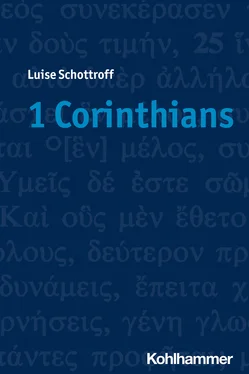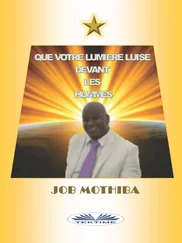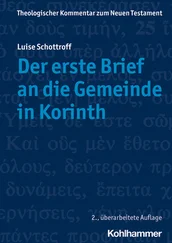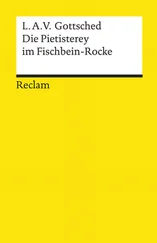3:13The fire of God’s judicial judgment, 177a mythic notion, and the image of a building threatened by fire are combined here. With this, the reference to everyday experiences continues to be in view. The danger of fire and the burning of houses and sections of a city were daily occurrences. 178In interpreting the metaphor about (temple) building (3:9b–17), on the one hand, life experience is to be taken into account as the basis of the image. On the other hand, attention must be given to the text’s explicit bridges to the issue that is to be interpreted. For 3:13, that means: The building goes up in flames, and now one sees whose work survives through their use of non-flammable building materials. It is not the point here to depict God’s judgment as a trial by fire for the congregation. What is being discussed is the builders’ accountability before God.
3:14The builders whose contribution to the building survives in the fire receive a reward. Here the image does not square with reality, for those who work with their hands need to get their pay at the end of the workday.
3:15Correspondingly, those whose contribution to the work goes up in flames suffer loss. But Paul doesn’t want to say by this that the people whose contribution to the building of the congregation lacks quality will for that reason be consigned to eternal death at the last judgment. They are compared with people who were barely saved from a burning building (cf. Jude 23: similarly, Amos 4:11). It is not spelled out what the loss is; it’s not important. In 11:32 there is a similar thought: God disciplines people but has no desire to annihilate them.
3:16Now Paul explicitly states the theological basis for his metaphor about the building: the congregation is God’s temple. Paul provides assurance: »Do you not know?« The temple image signifies: This is where God/God’s Spirit dwells (cf. 2 Cor 6:16). Here the issue is not about a claim of contrasting the true temple, the congregation, 179with the temple in Jerusalem, as was assumed in earlier interpretation. The issue is the incorporation of the messianic congregation in Corinth into the people of Israel’s relationship to God and God’s relationship to Israel. The people from the nations also belong to the God of Israel. Something similar happens, for example, with the designation of the congregation as »holy« and »assembly of God« (see on 1:2). An image like the one here is found at Qumran: the community is called a »holy house« for Israel. 180
The notion that the congregation as a community is the place where God is present ascribes to the community an incomparable dignity and power.
The sharp tone of 3:17, compared with 3:15, has repeatedly led to a certain puzzlement and to questions about what horrible internal threat through »opponents« could be meant. It is more likely that Paul is thinking about the destruction of the messianic community by Roman authorities, or officials in the city of Corinth, thus about a threat from outside. In the historical situation the congregation faces, that is not a remote possibility. The congregation could be driven out of the city, members could be accused and convicted, or the congregation could dissolve because the members are too afraid (see above on 1:18). Paul then puts the destruction of the congregation as God’s temple in the context of the history of the destruction of the temple in Jerusalem. Of course, as Paul wrote the second temple was still standing, but there were gloomy fears and prophecies of its destruction through foreign rulers, for example Dan 9:26 LXX, where the verb phtheirein /destroy is also used. This temple of the God of Israel in Corinth is also threatened, and God will avenge its destruction. The sentence uses the lex talionis form (see, for example, Exod 21:24), a law according to which the punishment fits the crime. 3:17 stands in the prophetic tradition of the book of Daniel (see, for example, 7:11–12). The »destruction« of the destroyer that is announced should not primarily be interpreted to apply to an individual person but to the downfall of an unjust regime at the hand of God.
3:17b summarizes once again the thoughts about God’s presence. The brief concluding phrase, »… and that temple is you,« makes the following clear: The people in the congregation are holy (cf. 1:2; Lev 19:2); they are the place where God is present. Every day these people who live in Corinth pass magnificent temples dedicated primarily to Roman gods. Paul assures them: Not these marble temples, but you yourselves, in the fellowship of your fragile bodies, are a temple in which the one God of Israel dwells.
18 Do not deceive yourselves. Those who think themselves to be wise in this world, in order to be truly wise, should not accommodate themselves to it. 19 The wisdom of this world is actually balderdash before God. It stands in Scripture: »God ensnares the wise in their own cleverness.« 20 And this also stands in Scripture: »The Eternal One knows the plans of the wise and knows how futile they are.« 21 Therefore, no one should put on airs with the people.
You are subject to no one: 22 Whether it be Paul, or Apollos, or Cephas, or the world, or life, or death, or the present, or the future. Everything is yours, 23 but you belong to the Messiah, and the Messiah to God.
Paul summarizes what in the preceding, by a critical analysis of the structures of this world, he has already called by name. People deceive themselves in that they do not want to acknowledge the force of their participation in society. 3:21b–23 are majestically formulated phrases about the holiness of the congregation.
3:18Self-deception, even for believers in the Messiah, is the way into insidious accommodation to the structures of the world. That leads to complicity that does not recognize its own corruption. A conscious process of change is necessary: away from the wisdom that society values and toward mōria /foolishness, which puts itself publicly on the side of those who are victims of violence (cf. Rom 12:2).
3:19Paul once again plays with the word mōria : In God’s eyes the »wisdom of the world« is mōria /foolishness—conformist talk that reinforces the structures in control. Paul quotes Scripture on this, first Job 5:12–13, in which the issue for him is especially the panourgia of the wise, their craftiness at the cost of others. In 3:20Paul continues with another Scripture quote (Ps 94:11), in which he substitutes the word »wise« for the biblical word »humankind« in order to make the reference to the present situation more clear: God sees right through the wisdom of the world.
3:21anames the hubris that accompanies lust for power, as does 1:29 (Jer 9:22 [Eng. Bible, 9:23]).
With 3:21b,triumphal praise for the congregation’s holiness begins. In tone and solemnity, it is comparable to Rom 8:38–39.
»Everything belongs to you,« on the one hand, turns on its head the power structure that has arisen in the congregation (»I belong to the Paul group,« etc., 1:12), and, on the other, relates to the reality of belonging to God (3:23): Those who are set free from all domination belong to God alone.
3:22The hymn praises a consummation that is anticipated from God’s future and can already be experienced in the present: liberation from oppressive structures in the congregation (3:22a) and in society (3:22b). Society’s tyranny is wielded by powers Paul here calls »world,« »death and life« and »present and future.« The two word pairs are also found in Rom 8:38. Everything is poisoned, even life, for people become slaves to power, and the present is a time of terror. 181God put an end to this reign of terror by raising Jesus from the dead.
Читать дальше












